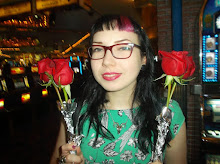
22nd December 2009: With flash.

With flash again..

Without flash.. 1am, the sky was peach and illuminated, it looked so eerie and cool! I think we are on Mars, thats the colour the sky is there! It was like day time! It went dark after about half an hour though when it stopped snowing.

My cat Simba is bonkers. I had my suitcase in that same place and he sat on it, then my backpack too! I think he likes that location near me on the computer :)

I have a very intelligent cat:


New Years Eve, I wasn't out partying, I stayed in..well not quite..I went out in the back garden at about 8.30 in my dressing gown with my telescope and gazed at the moon. It was so bright and full, and the sky was so clear. It was freezing, I couldn't feel my fingers! I tried to hold the camera still and take a photo, this was the best outta the bunch, better than my usual attempts of photos of the moon anyway:

Today. I bought this plastic squirrel in a set with a mini plastic racoon from home bargains years ago, I wanted to screw them to the mantel piece in the living room but my parents wouldn't let me, pffft! My Dad put them in the garden instead, and so here is poor Mr.Squirrel covered in snow :(

I thought it would look nice to hang christmas tree baubles on snowy branches outside and add some colour to the ubiquitous white:

I started reading a new book on the train from Manchester to back home. The book is "A Short History of Nearly Everything" by Bill Bryson. I'd been meaning to read it for a few years, I came across it in the charity shop a few months ago and ever since it's been in my book pile waiting for me to finish "In Search Of The Edge Of Time" by John Gribbin which took forever! I do like to read but it always seems to take me forever coz I read in bed and i'm always too tired so usually I manage about 5 pages then put it down and try and go to sleep. I've been trying to make more of an effort with this book and yesterday I came across some people who get through about 94 and 120 books per year! I really have to pick up the pace! So i've been trying even harder and read during the day instead of watching TV, and got through about 60 pages in the past 2 days, better than 10 in 2 days! I'm a third through the book now, it's really good. Next up after this book is "The Physics of Star Trek" which i'd wanted to read and finally found in a charity shop a few days ago for £1.99 :). Anyway back to the current book, I learn stuff every day from it, the other day I learnt what a Micron is, one thousandth of a millimetre (or equivalently one millionth of a metre or one thousand nanometres). There are lots of cool names for things, here's a paragraph I read last night:
"As physicists build bigger and more ambitious machines, they began to find or postulate particles or particle families seemingly without number: muons, pions, hyperons, mesons, K-mesons, Higg bosons, intermediate vector bosons, baryons, tachyons."
There are interesting and funny facts and stories about crazy scientists and such like this
"John Dalton was an exceptionally bright student - so very bright, indeed, that at the improbably youthful age of twelve he was put in charge of the local Quaker school. This perhaps says as much about the school as about Dalton's precocity, but perhaps not: we knew from his diaries that at about this time he was reading Newton's Principia - in the original Latin - and other works of a similarly challenging nature. At fifteen, still school mastering he took a job in the near by town of Kendal and a decade after that he moved to Manchester."
And we have a building at MMU named after him! Now I know all about who it was named after. There are a lot of scientists who ended up in Manchester from all over it seems, from reading this book. And this next guy is from the same place as me:
"Owen had grown up in Lancaster, in the north of England, where he had trained as a doctor. He was a born anatomist and so devoted to his studies that he sometimes illicitly borrowed limbs, organs and other parts from corpses and took them home for leisurely dissection. Once, while carrying a sack containing the head of a black African sailor that he had just removed, Owen slipped on a wet cobble and watched in horror as the head bounced away from him down the lane and through the open doorway of a cottage, where it came to rest in the front parlour. What the occupants had to say upon finding an unattached head rolling to a halt at their feet can only be imagined. One assumed that they had not formed any terribly advanced conclusions when, an instant later, a fraught-looking young man rushed in, wordlessly retreived the head and rushed out again."This is funny/weird:
"Brand became convinced that gold could somehow be distilled from human urine. (The similarity of colour seems to have been a factor in his conclusion.) He assembled fifty buckets of human urine, which he kept for months in his cellar."He didn't find gold but instead found phosphorus.
I recommend the book anyway.


No comments:
Post a Comment